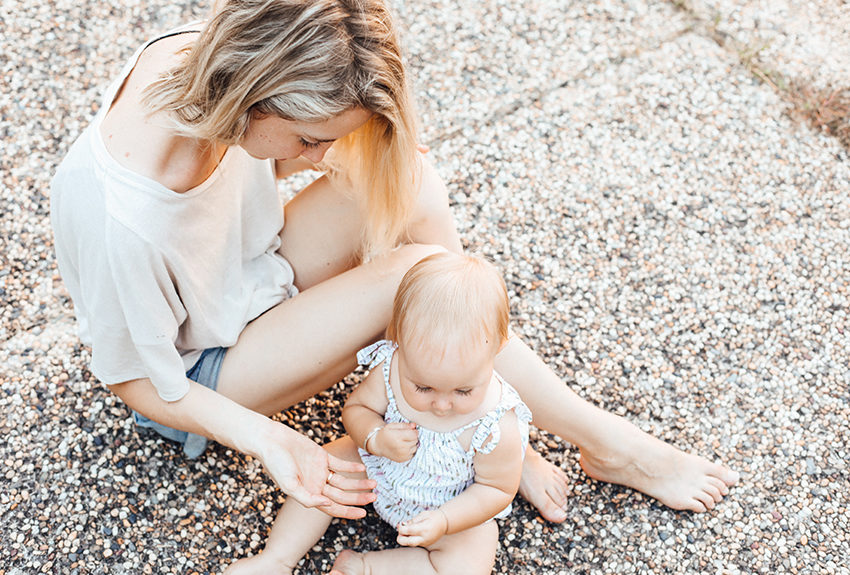Before and after the birth of a child, some anxiety is completely normal. Especially in the first few weeks of baby care, parents may lack proper sleep, time for themselves and confidence in their abilities. All of this can leave them feeling anxious and out of control. However, if it’s more than an occasional disturbing thought or feeling of unease, it could be a form of postpartum anxiety. Although it’s often considered part of postpartum depression, postpartum anxiety can exist on its own. It is classified within the perinatal mood and anxiety disorders (PMADs)1, which include:
- Generalized anxiety disorder (GAD)
- Panic disorders
- Postpartum obsessive-compulsive disorder (PPOCD)
- Postpartum bipolar disorder
- Postpartum psychosis
- Postpartum post-traumatic stress disorder (PPTSD)
The condition can develop during pregnancy or in the months following childbirth. And because this disorder isn’t well-known or sometimes fully understood, doctors may overlook it or misdiagnose it. Parents who don’t know the signs can often miss them or try to hide them. They may feel ashamed or embarrassed and worry what others will think. They can feel pressure to appear “normal” or perfect. Fathers may think they’re supposed to show strength while they hide their emotions.2 As a result, sufferers can fail to get treatment.
Know your history and risk factors:
There are several reasons postpartum anxiety may pose a higher risk for some families. Someone who has been diagnosed with (or has a family history of) anxiety, trauma or depression is more likely to experience postpartum anxiety. Some studies have linked stress and PMADs to lifelong substance abuse.3 Research has also found that women who have had a miscarriage or stillbirth or an unplanned or unwanted pregnancy are more susceptible.4 A history of abuse or lack of support from partners are among the factors. Certain personality types, such as those who are highly sensitive or “type A,” may also be more likely to develop the condition.5 A stressful event may also trigger the condition months later, as can shifts in hormone levels and other physical conditions.
Overall, women are considered to be at higher risk for anxiety or depression because of the challenges of pregnancy and motherhood. According to Postpartum Support International, 25 to 35 percent of postpartum anxiety cases start during pregnancy, but many mothers won’t begin feeling symptoms until after childbirth. Having risk factors doesn’t automatically mean you will suffer from postpartum anxiety but they may help to identify it.
The Signs of Postpartum Anxiety
Postpartum anxiety can present in many different ways but common symptoms include worry, feeling “weepy” or agitated, and symptoms similar to premenstrual syndrome. Each form of anxiety has its own set of symptoms,6 which include the following:
Generalized anxiety disorder:
- Catastrophic thinking: Thoughts about irrational, worse-case scenarios or outcomes
- Excessive worry for at least six months
- An inability to control worries
- Being overly alert or hypervigilant
- Insomnia or trouble sleeping
- Tiring easily
- Muscle tension
- Difficulty focusing
- Restlessness
- Irritability
Panic disorder
- “Fight-or-flight” responses: increased heart rate, chest pain, shortness of breath, dizziness, sweating, shaking, numbness in limbs
- Feelings of dread
- Worry about dying
- Feeling detached or that things aren’t real
- Fear of loss of control
- Feeling “hot flashes” or chills
- Fear of the physical symptoms of anxiety
Obsessive-compulsive disorder (OCD)
- Repetitive, unwanted thoughts of harm
- An awareness of the inappropriateness of disturbing thoughts
- Fear of contamination or dirt
- Compulsive behaviors, such as frequently washing, checking, researching, avoidance, or seeking reassurance to reduce the anxiety
Postpartum bipolar disorder (I and II)
Among the symptoms of bipolar I and II mood disorders are overconfidence, difficulty focusing, and periods of high energy, including rapid speech, that alternate with depression. Severe cases of bipolar I include delusions and hallucinations. With bipolar II, the manic episodes are less extreme, but depression can last longer than in bipolar I.
Postpartum post-traumatic stress disorder
- Reliving a past traumatic event, including the childbirth itself, without control
- Flashbacks or nightmares
- Avoiding things tied to the event (thoughts, feelings, people, places, and other details)
- Persistent increased arousal (irritability, trouble sleeping, hypervigilance, or an exaggerated “startle” response)
- Anxiety and panic attacks
- A sense of unreality and detachment
Postpartum depression and postpartum psychosis are also among the PMADs with different symptoms.
Coping With Postpartum Anxiety
Know that you are not alone. Many families struggle with this. When you feel anxious, label it as your condition—it’s not you—and accept that you’ll sometimes feel tense and that’s okay. In these challenging times, anxiety is normal.
People with milder forms of postpartum anxiety can learn to manage the symptoms. Some parents believe they need to let them subside before they continue to do things. But overly catering your life and activities to your anxieties can feed into their story line, strengthening them. Better to ask the question, ‘what would I be doing if I weren’t focused on my fears, worries and anxieties right now?’ and then make every effort to do that.
Helpful methods for controlling anxiety are cognitive-behavioral therapy (CBT), exercise, art therapy, and relaxation techniques. There are also ways to calm anxiety in the moment. Friends, loved ones, and peers who understand what you’re going through may anchor you. And if you can’t always reach out, ask them to “check-in” on you regularly.
Getting Help
When anxiety disrupts your life often, it’s a sign you need help.
Treatment includes therapy, support, and medication. But it can vary depending on your condition and desires, especially if you’re concerned about the effect of medications on your baby. Every parent is different and should seek a treatment plan tailored to their needs. Because postpartum anxiety isn’t widely accepted apart from postpartum depression, you may need to make sure you get a proper diagnosis.
Don’t be afraid to speak up or get treatment. You and your baby both deserve proper care and nurturing. The sooner you get help, the faster you can start working to feel better.
If you or someone you know is struggling with anxiety before or after childbirth, contact us today. We also offer tele-mental health services. For more immediate assistance, call our 24-hour Crisis Hotline: (518) 483-3261 or (518) 891-5535.
———————


 Previous Post
Previous Post


